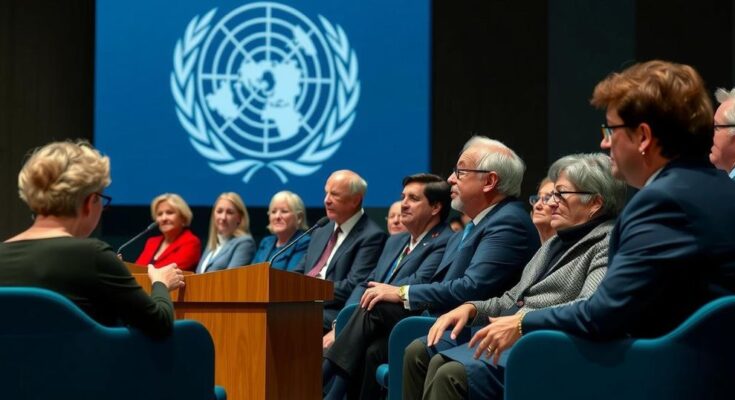At the UN climate talks, global leaders highlighted the severe impacts of climate change on their countries, including catastrophic flooding and extreme heat. The discussion centered on climate finance, with calls for wealthy nations to support vulnerable countries in adapting to changing climates. Major carbon-emitting nations were notably absent, yet some countries announced new emissions reduction targets, emphasizing the urgent need for collective action.
During the annual United Nations climate conference, leaders from around the globe articulated the acute challenges their nations face due to climate change. Croatia’s Prime Minister Andrej Plenkovic highlighted catastrophic flooding in Europe, emphasizing the Mediterranean’s vulnerability and the urgent need for action. Greece’s Prime Minister expressed the necessity for transparency regarding the trade-offs involved in reducing global temperatures, particularly following a summer marked by extreme heat and water shortages. The Prime Minister of Pakistan, Shehbaz Sharif, illustrated the severe impacts of climate change through devastating monsoon floods and record heat that has affected thousands. Similarly, Bahamas Prime Minister Philip Edward Davis noted the extensive debts incurred from climate disasters, urging support from wealthier nations and oil companies. On the African continent, officials advocated for initiatives that promote green development to withstand the increase in extreme weather events. Notably, several significant players in global emissions reduction were absent, including the world’s largest polluters: the United States, China, India, and Indonesia. Nonetheless, UK Prime Minister Keir Starmer announced an ambitious emissions reduction target of 81% by 2035, exceeding previous commitments. The pivotal theme of this year’s talks revolves around climate finance, with a focus on how wealthier nations can assist poorer countries in addressing climate-related damages and transitioning towards sustainable economies.
The United Nations climate conference serves as a global platform where nations convene to address the pressing issue of climate change and its varied repercussions. This year’s conference has garnered attention as numerous leaders shared firsthand experiences of severe weather events in their countries, illustrating the immediate impacts of climate change. The collective concern reflects a shared urgency to transition towards greener practices while also addressing the financial disparities between developed and developing nations in mitigating and adapting to climate-related challenges.
In summary, the UN climate conference provided a critical forum for world leaders to voice the dire impacts of climate change as experienced in their nations. The conversations highlighted the need for financial support from wealthier countries to aid poorer nations in coping with climate-related damages. The absence of major carbon-emitting nations during the talks raises concerns regarding global commitment to combating climate change, despite some nations committing to ambitious emissions reduction targets.
Original Source: www.voanews.com




